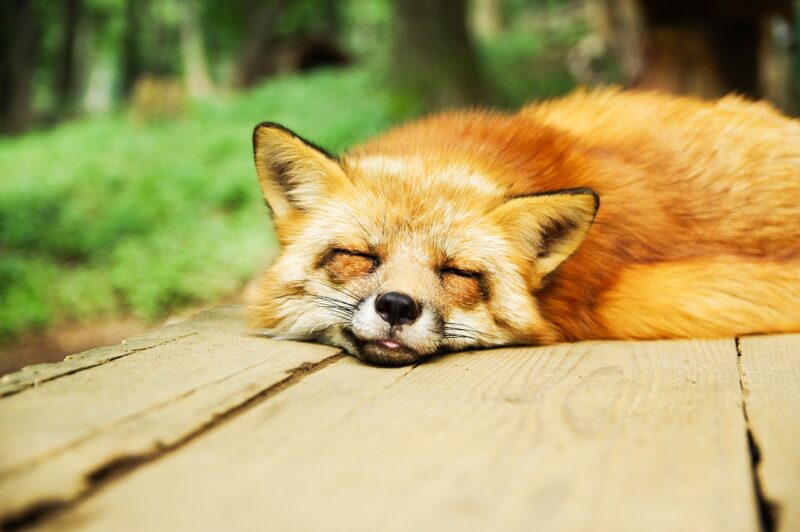Exploring the Evolutionary Purpose of Sleep and Why All Animals Need It
November 12, 2024

Sleep is not only a state of rest for the body, but it is an evolutionary marvel that plays a crucial role in the survival of countless species on our planet. Across the animal kingdom, sleep manifests in various forms, from the deep slumber of mammals to the unique sleeping habits of marine life. In this article, we will delve into the evolutionary purpose of sleep, examine how different animals experience sleep, and uncover the profound significance of this biological phenomenon.
1. The Evolution of Sleep: A Biological Necessity
Sleep is found in nearly every species on Earth, suggesting that it serves an essential biological function. Theories about the evolutionary purpose of sleep vary, but several prominent hypotheses highlight its significance:
- Restoration Theory: One of the most widely accepted theories posits that sleep allows the body to restore and repair itself. During sleep, cellular processes become more active, facilitating tissue growth, muscle repair, and protein synthesis. Animals, especially those that engage in intense physical activity, depend on restorative sleep to maintain their health and vitality.
- Energy Conservation Theory: Sleep may serve as a mechanism to conserve energy. By resting during periods of low activity or when food is scarce, animals can minimize energy expenditure. This theory is particularly relevant for prey animals that may have heightened vulnerability to predators during active hours.
- Memory Consolidation Theory: Emerging research suggests that sleep plays a vital role in memory formation and learning. Animals, including humans, process and consolidate experiences during sleep. This may help them navigate their environments and adapt to changes more effectively.
These theories indicate that sleep is vital for the evolutionary success of species, enhancing fitness and overall survival.
2. Sleep Across the Animal Kingdom
The manifestation of sleep varies widely across the animal kingdom. While all animals require rest, the patterns and behaviors associated with sleep differ significantly:
- Mammals: Mammals experience complex sleep cycles that include REM (Rapid Eye Movement) and non-REM sleep. REM sleep, characterized by rapid eye movements and dreaming, is thought to play a crucial role in memory consolidation and emotional regulation. For example, dolphins experience unihemispheric slow-wave sleep, allowing them to keep one half of their brain awake for swimming and breathing while the other half rests.
- Birds: Birds also exhibit REM sleep, with some species demonstrating unique sleep behaviors. Migratory birds, such as the Arctic Tern, may sleep on the wing during long flights, taking short naps while maintaining the ability to navigate and avoid predators. Birds have been observed engaging in social sleep, where they sleep in groups for safety against potential threats.
- Reptiles and Amphibians: Many reptiles and amphibians enter states of torpor, which can resemble sleep but may be more closely related to hibernation. These rested states typically occur when environmental conditions are unfavorable, allowing these creatures to conserve energy. For instance, green sea turtles can sleep underwater for several hours before surfacing for air.
- Insects: Unlike mammals, insects experience sleep differently, with some species exhibiting distinct patterns of inactivity. For example, honeybees show changes in behavior when they sleep, such as reduced body movement and less responsiveness to external stimuli. More fascinatingly, research has shown that honeybees experience REM-like sleep, suggesting they may dream about floral patterns and hive navigation.
These observations indicate that sleep can adapt to the needs of various animal species, balancing the demands of survival with the need for rest and recovery.
3. The Importance of Sleep for Survival
Sleep is indispensable not only for individual health but also for species survival. Several studies and observations illustrate how lack of sleep can lead to detrimental consequences:
- Increased Vulnerability: Animals that do not get sufficient sleep are more susceptible to predators. For instance, studies on mice have demonstrated that sleep-deprived individuals have a harder time avoiding predation due to impaired cognitive function and decreased alertness.
- Reduced Immune Function: Sleep is crucial for a robust immune system. Sleep-deprived animals exhibit impaired immune responses, making them more prone to infections and disease. This has significant implications for populations in the wild, where health is critical for reproductive success and survival.
- Cognitive Impairment: Extended periods of sleep deprivation adversely affect memory and cognitive performance. For species that rely on complex navigational and social structures, such impairments can hinder their ability to forage, mate, and raise offspring.
The adaptive nature of sleep reinforces why it remains a non-negotiable aspect of life across the animal kingdom.
4. The Sleep Patterns of Humans: A Unique Perspective
Humans are no exception to the broader phenomenon of sleep, but our unique circumstances and lifestyle choices have led to specialized patterns. Unlike many animals, humans typically follow a biphasic sleep pattern, which means we tend to sleep in two distinct phases: the night and potentially a daytime nap. This adaptability suggests a complex interplay between biological needs and cultural factors.
The role of sleep in humans involves:
- Cognitive Function and Creativity: Research has shown that sufficient sleep fosters better cognitive performance, creativity, and problem-solving skills. People are often better able to access memories and formulate new ideas after a good night’s rest.
- Emotional Regulation: Sleep helps to regulate emotions, acting as a buffer against stress and mood disorders. Lack of sleep can lead to increased irritability and anxiety, impacting relationships and overall quality of life.
- Health and Longevity: Sleep is pivotal for physical health. Chronic sleep deprivation is associated with numerous health conditions, including obesity, diabetes, cardiovascular diseases, and a shorter lifespan.
The lessons learned from our own sleep patterns echo the universal significance of sleep across the animal kingdom.
5. Protecting the Sleep of Animals: Conservation Implications
As we strive to protect the environment and various species, it’s essential to recognize the importance of sleep in conservation efforts. Habitat loss, increased stress from human activities, and climate change can significantly disrupt the sleep patterns of wildlife. Studies indicate that preserving natural habitats is vital not only for providing food but also for allowing animals to rest and recover effectively.
Efforts in wildlife conservation must therefore include:
- Habitat Preservation: Protecting natural habitats allows animals to engage in healthy sleep behaviors without the threat of human disturbance. Initiatives aimed at establishing wildlife corridors help maintain the ecological integrity required for species to thrive globally.
- Awareness and Education: Raising awareness about the importance of sleep for animals can lead to more responsible behaviors among humans. Educating communities about the connection between sleep and survival can foster stewardship and protect species from sleep deprivation risks.
- Research and Monitoring: Ongoing research into animal sleep patterns can offer insights into how external factors influence sleep quality. Monitoring these patterns enables conservationists to implement targeted strategies and interventions necessary for preserving species and their habitats.
Understanding and protecting the sleep needs of various species is critical to ensuring their survival on a planet marked by rapid change.
Conclusion
Sleep is a universal and essential biological function that serves various critical purposes across different species. From restoration to energy conservation and memory consolidation, the multifaceted roles of sleep underscore its evolutionary importance. Observing the diverse sleeping habits of animals offers valuable insights into the biological rhythms that govern all life.
Humans, too, can take cues from our wildlife counterparts. Prioritizing sleep equips us to navigate the challenges of daily life, reinforcing both our physical and mental well-being. Ensuring that we protect natural habitats and acknowledge the significance of sleep for animals can contribute to preserving the delicate balance necessary for a thriving planet.
In understanding sleep’s evolutionary purpose, we deepen our appreciation for this natural wonder and reaffirm our responsibility to protect both ourselves and the myriad creatures that share our world.






